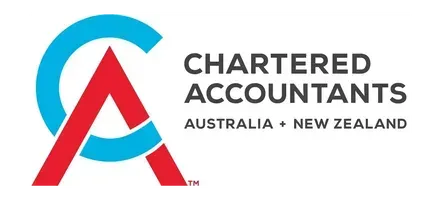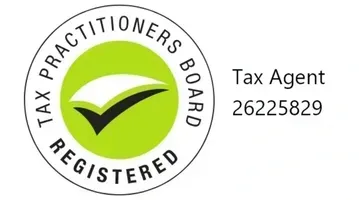Self-Managed Superannuation Funds (SMSF) for Ipswich locals.
Skyways Accountants Ipswich handle all your SMSF tax and accounting needs, so you can focus on what matters - not spending time managing ATO compliance.
SMSF compliance and tax returns made simple
A Self-Managed Superannuation Fund (SMSF) will give you greater flexibility and control over the investment strategy of your superannuation. However, being an SMSF trustee comes with the responsibility to make sure that extensive compliance and regulation are being met.
Skyways Accountants specialise in taking away the burden of SMSF administration so that you can focus on what matters. We provide expert assistance with SMSF set up, financial statements, SMSF tax returns and audit.
How we help:
Meet Michael Courtin, leading Ipswich SMSF tax & compliance expert
A practising Chartered Accountant (CA) since 2011, Michael Courtin has more than 14 years' professional experience in public practice. Michael works with a diverse range of clients, providing the best tailored business, tax and accounting solutions. From the support needed to run the day-to-day affairs of your business, to more complex advice on how to best manage your taxation obligations, Michael delivers the highest level of professional service.
Why use Skyways Accountants for your Self-Managed Superannuation Fund?
We're Pro-active
We're a forward thinking, proactive Ipswich accounting firm. We don't wait for you to call us.
It's All About Your Business
We help you minimise your tax and make the most of opportunities, incentives and concessions.
Results Focused
In terms you can understand, we help you maximise your profitability, cash flow growth and protect your assets.
We Care
Get an exceptional and fast personalised service, with transparent upfront pricing and no charges for quick calls or emails.
Latest Accountancy & Business Insights
What is a Self-Managed Superannuation Fund (SMSF) and how does it work?
A Self-Managed Superannuation Fund (SMSF) is a private super fund that you manage yourself - giving you full control over how your retirement savings are invested. Unlike retail or industry super funds, an SMSF allows you to tailor your investment strategy to your personal financial goals, risk profile, and retirement timeline.
An SMSF can have up to six members, all of whom act as trustees (or directors of a corporate trustee). This means you are legally responsible for ensuring the fund complies with superannuation and tax laws, including investment decisions, record-keeping, and reporting.
Common investments within SMSFs include:
- Australian and international shares
- Managed funds
- Property (residential or commercial)
- Term deposits, cash, and fixed interest
- Alternative assets (with restrictions)
An SMSF offers flexibility, control, and tax efficiency, but it also comes with strict compliance obligations under the Superannuation Industry (Supervision) Act 1993. It’s best suited for individuals who have a strong interest in managing their finances and can commit time and effort to ensure the fund remains compliant.
If managed well, an SMSF can become a powerful vehicle for building long-term wealth and retirement security.
How do I set up an SMSF and what are the legal requirements?
Setting up an SMSF involves several structured steps to ensure it’s legally compliant from the start. Here’s how the process typically works:
- Decide on the structure: Choose whether your fund will have individual trustees or a corporate trustee (a company that acts as trustee). A corporate trustee often provides better asset protection and administration flexibility.
- Create the trust and trust deed: The SMSF must be established as a trust with a trust deed outlining the fund’s rules, including how contributions, benefits, and investments will be managed.
- Register the fund with the ATO: You’ll need to obtain an Australian Business Number (ABN), Tax File Number (TFN), and register for Superannuation Fund status with the Australian Taxation Office (ATO).
- Set up a dedicated bank account: The SMSF requires its own bank account for managing member contributions, rollovers, and investment income.
- Develop an investment strategy: The ATO requires trustees to have a written investment strategy that considers risk, liquidity, diversification, and insurance needs.
- Comply with super laws: The fund must operate solely for the purpose of providing retirement benefits to its members, in line with the sole purpose test.
Professional guidance during setup is crucial - mistakes early on can lead to costly compliance issues. Most people engage a licensed SMSF advisor or accountant to handle the trust deed, registrations, and documentation to ensure the fund meets ATO requirements from day one.
What are the ongoing tax and compliance obligations for an SMSF?
Once your SMSF is established, you must meet several annual tax, auditing, and reporting obligations to remain compliant with the ATO. These include:
- Annual Financial Statements: Every year, the SMSF must prepare financial statements outlining income, expenses, assets, and liabilities.
- Independent Audit: A registered SMSF auditor must review the fund’s financial statements and compliance with superannuation laws before the annual return is lodged.
- Lodging the SMSF Annual Return: This return includes income tax, super regulatory information, and member contribution details. It must be lodged with the ATO by the due date each year.
- Paying the SMSF Supervisory Levy: The ATO imposes a levy (currently around $259 per year) on all SMSFs to fund regulation and supervision activities.
- Record-Keeping Requirements: Trustees must keep detailed records, including minutes of trustee meetings, investment decisions, and member reports for up to 10 years.
Compliance with Contribution and Pension Rules:
- You must adhere to ATO limits for concessional and non-concessional contributions, and ensure pension payments (if applicable) meet minimum withdrawal requirements.
- Failure to comply can lead to significant penalties, such as the fund being made non-complying (losing concessional tax treatment) or trustees facing personal fines.
Working with an experienced SMSF accountant or advisor ensures these obligations are met accurately and on time — protecting both your fund’s compliance status and your retirement savings.
What are the tax advantages and potential risks of running an SMSF?
An SMSF offers significant tax advantages, but it’s equally important to understand the risks and responsibilities involved.
Tax Benefits:
- Concessional Tax Rates: Investment income within a complying SMSF is generally taxed at only 15%, compared to personal marginal rates.
- Capital Gains Discount: Assets held for more than 12 months are eligible for a one-third capital gains tax discount, reducing the effective rate to 10%.
- Tax-Free Income in Pension Phase: Once members start drawing a retirement pension (subject to limits), investment income and capital gains on assets supporting that pension can become tax-free.
- Contribution Deductions: Personal concessional contributions may be tax-deductible, reducing taxable income.
Risks and Responsibilities:
- Complex Compliance: SMSFs are tightly regulated - trustees are personally liable for breaches of superannuation law.
- Administrative Costs: Setup and annual running costs (accounting, audit, compliance) can be high if the fund’s balance is small.
- Investment Risk: Poor investment decisions or lack of diversification can reduce long-term performance.
- Time Commitment: Managing an SMSF requires ongoing attention to detail, record-keeping, and financial decision-making.
Because of these responsibilities, SMSFs are typically recommended for people with super balances of at least $250,000–$300,000 and a genuine interest in investing. Engaging a qualified SMSF specialist helps you enjoy the benefits of control and flexibility, while minimising compliance risks and ensuring your fund remains in the ATO’s good books.











